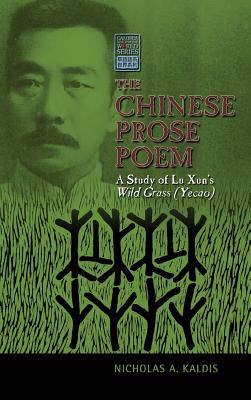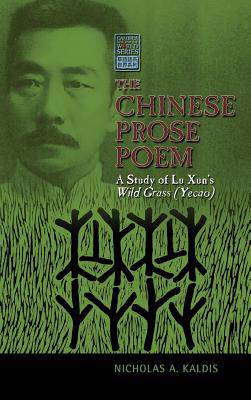
Je cadeautjes zeker op tijd in huis hebben voor de feestdagen? Kom langs in onze winkels en vind het perfecte geschenk!
- Afhalen na 1 uur in een winkel met voorraad
- Gratis thuislevering in België vanaf € 30
- Ruim aanbod met 7 miljoen producten
Je cadeautjes zeker op tijd in huis hebben voor de feestdagen? Kom langs in onze winkels en vind het perfecte geschenk!
- Afhalen na 1 uur in een winkel met voorraad
- Gratis thuislevering in België vanaf € 30
- Ruim aanbod met 7 miljoen producten
Zoeken
Omschrijving
This book is in the Cambria Sinophone World Series (general editor: Victor H. Mair). Yecao (Wild Grass, a.k.a. Weeds), is a 1927 collection of twenty-three prose poems written by Lu Xun (1881-1936), who is China's foremost writer of the twentieth-century. The poems, written between 1924 and 1926, were first published serially in the journal Threads of Talk from 1924 to 1927. This prose poem collection -a literary masterpiece in the eyes of many- features some of Lu Xun's most complex and psychologically dense creative works; Lu Xun himself is purported to have said his "entire philosophy is contained in his Yecao." Despite the significance attributed to this collection within Lu Xun's literary corpus, until now there has not been a single comprehensive English-language study of Yecao. Part of the reason for this considerable gap in the scholarship can be attributed to the fact that fiction has been given primacy in most literary studies of Lu Xun, and prose poetry (sanwen shi) as a genre has generally not been well represented -if at all- in surveys, anthologies, and other collections of twentieth-century Chinese literature. A related cause is Yecao's generic uniqueness, which frustrates efforts to locate it within the canon of modern Chinese literature. Yecao also poses interpretive problems for its readers, because of its unprecedented experimental style (i.e., a lack of commensurability with familiar Chinese literary genres, traditional or modern) and the intricacy and variety of the prose poems, which are notable for their emotional intensity, complex paradoxical structures, symbolic density, sometimes-transparent references to contemporary historical events, and overall generic ambiguity. The combination of the above factors has led to this unique and exceptionally creative collection being frequently ignored or, at best, dealt with in a cursory and selective fashion in much of the English-language Lu Xun scholarship. This study remedies the absence of a comprehensive English-language study of Lu Xun's Yecao and is the perfect companion to the reading and study of Yecao. It is not only a useful reference work and bibliographical source but also an informative contribution to and dialogue with the extant scholarship. Most importantly, this study engages with the Yecao prose poems in a rigorous scholarly fashion while simultaneously allowing each prose poem to influence its reader and determine directions and conclusions made during the interaction of interpretation. This book deftly addresses in detail key aspects of context and content integral to interpreting Yecao. As the first English-language companion to Yecao (providing bibliographical resources, historical context, background on the prose poem genre, an elaboration of Lu Xun's mature aesthetic praxis and philosophical outlook), the book's interpretations of Lu Xun's prose poems will further aspire to bring Yecao and a psychoanalytically informed practice of close reading closer to the fore of Lu Xun studies specifically and Chinese literary studies in general.
Specificaties
Betrokkenen
- Auteur(s):
- Uitgeverij:
Inhoud
- Aantal bladzijden:
- 380
- Taal:
- Engels
- Reeks:
Eigenschappen
- Productcode (EAN):
- 9781604978636
- Verschijningsdatum:
- 8/01/2014
- Uitvoering:
- Hardcover
- Formaat:
- Genaaid
- Afmetingen:
- 152 mm x 229 mm
- Gewicht:
- 725 g

Alleen bij Standaard Boekhandel
+ 386 punten op je klantenkaart van Standaard Boekhandel
Beoordelingen
We publiceren alleen reviews die voldoen aan de voorwaarden voor reviews. Bekijk onze voorwaarden voor reviews.









